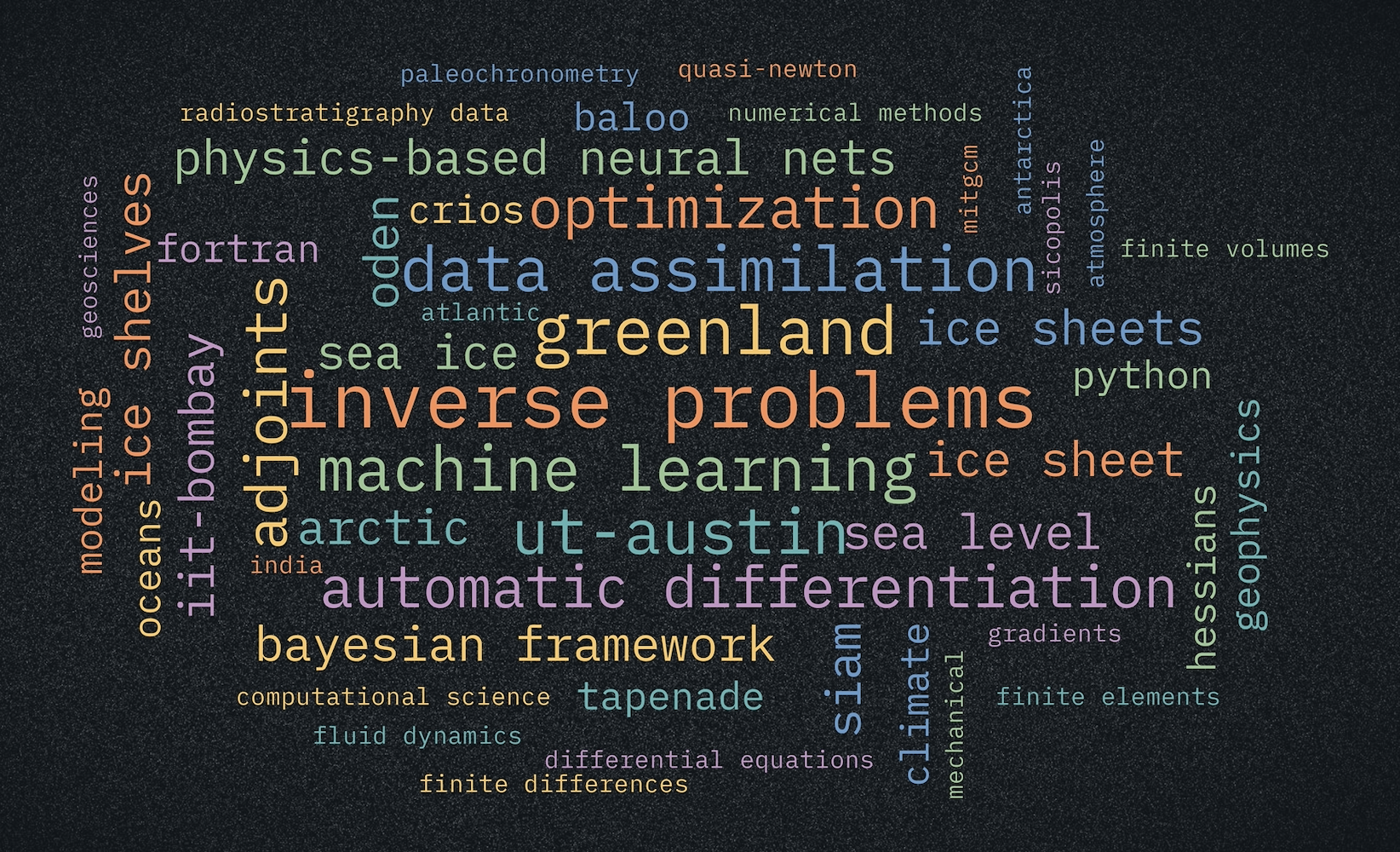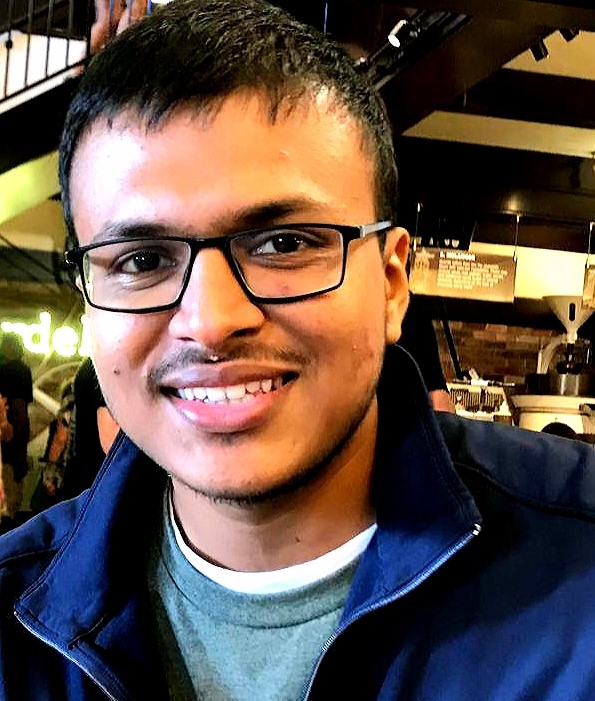Home

UPDATE: I am graduating in December 2025 and am actively exploring research-focused opportunities in academia and industry. Please feel free to reach out if my background aligns with your team. I’m quick to pick up new concepts and enjoy working on complex, interdisciplinary problems.
I am a Ph.D. candidate in the Computational Science, Engineering, and Mathematics (CSEM) program at The Oden Institute for Computational Engineering and Sciences, The University of Texas at Austin. I am advised by Dr. Patrick Heimbach in the CRIOS research group.
My research spans PDE-constrained Bayesian inverse problems, robust uncertainty quantification (UQ), physics-informed machine learning, and eXplainable AI (XAI). I develop methods to infer uncertain boundary conditions, initial states, and model parameters in a continental-scale ice sheet system (specifically, Greenland), using radiostratigraphy-derived age layer data. The goal is to improve the physical realism of ice sheet models and refine projections of sea level rise over the coming century.
I am deeply committed to open-source scientific software and have led several initiatives:
- Lead developer of SICOPOLIS-AD v2, an adjoint-enabled ice sheet model for data assimilation
- Core contributor to MITgcm-AD v2, a free and open-source alternative to the proprietary MITgcm adjoint
- Developer of Julia-based tools interfacing Enzyme and MPI for glaciological modeling
- Reviewer for the Journal of Open Source Software
In Summer 2024, I interned at Ansys as a machine learning intern. I worked on a Generative AI pipeline that transforms a single user-provided image into a 3D object mesh for simulation workflows. The system combined amortized neural radiance fields (NeRFs) with 3D-aware diffusion models into a fast, scalable, and parallelizable framework.
Previously, I earned a B.Tech in Mechanical Engineering (with Honors) and a Minor in Computer Science from IIT Bombay, and an M.S. in Computational Science from UT Austin.
I’ve collaborated with researchers at Argonne National Lab, Scripps Institution of Oceanography, Hokkaido University, MIT, INRIA (France), IIT Bombay, and IIT Kanpur.
Outside of work, I enjoy tennis, yoga, reading, chess, cricket, and hiking. I also love spending time with our family dog, Baloo.
News
I successfully defended my Ph.D. Dissertation today! The announcement for the defense can be found here.
I presented a talk titled “Leveraging Automatic Differentiation to Improve Ice-Sheet and Ocean Modeling” in ICCOPT VIII held in University of Southern California (USC). Fun fact: I bantered with an Aussie about the upcoming Ashes and later found out he was none other than Stephen Wright! His book on Numerical Optimization along with Jorge Nocedal is world-renowned.
I presented a detailed overview of Algorithmic Differentiation (AD) as a lecturer at the ECCO Summer School 2025 held in Pacific Grove, CA.
The 9th Annual International Polar Film Festival hosted by USAPECS is live! Check it out here.
I will be giving a broad overview talk on Algorithmic Differentiation (AD) at the ECCO Hackweek being held in Caltech, Pasadena, CA!
